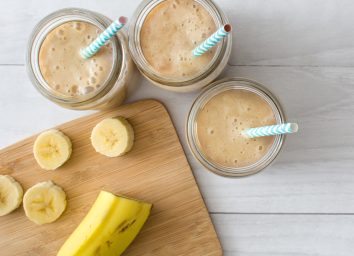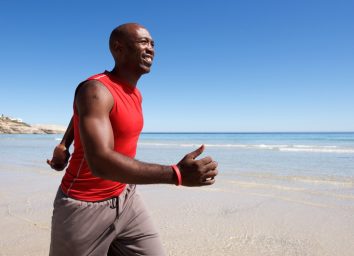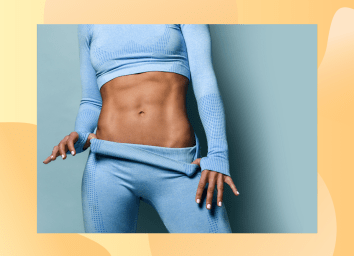Eating Habits to Avoid Before a Workout, Say Dietitians
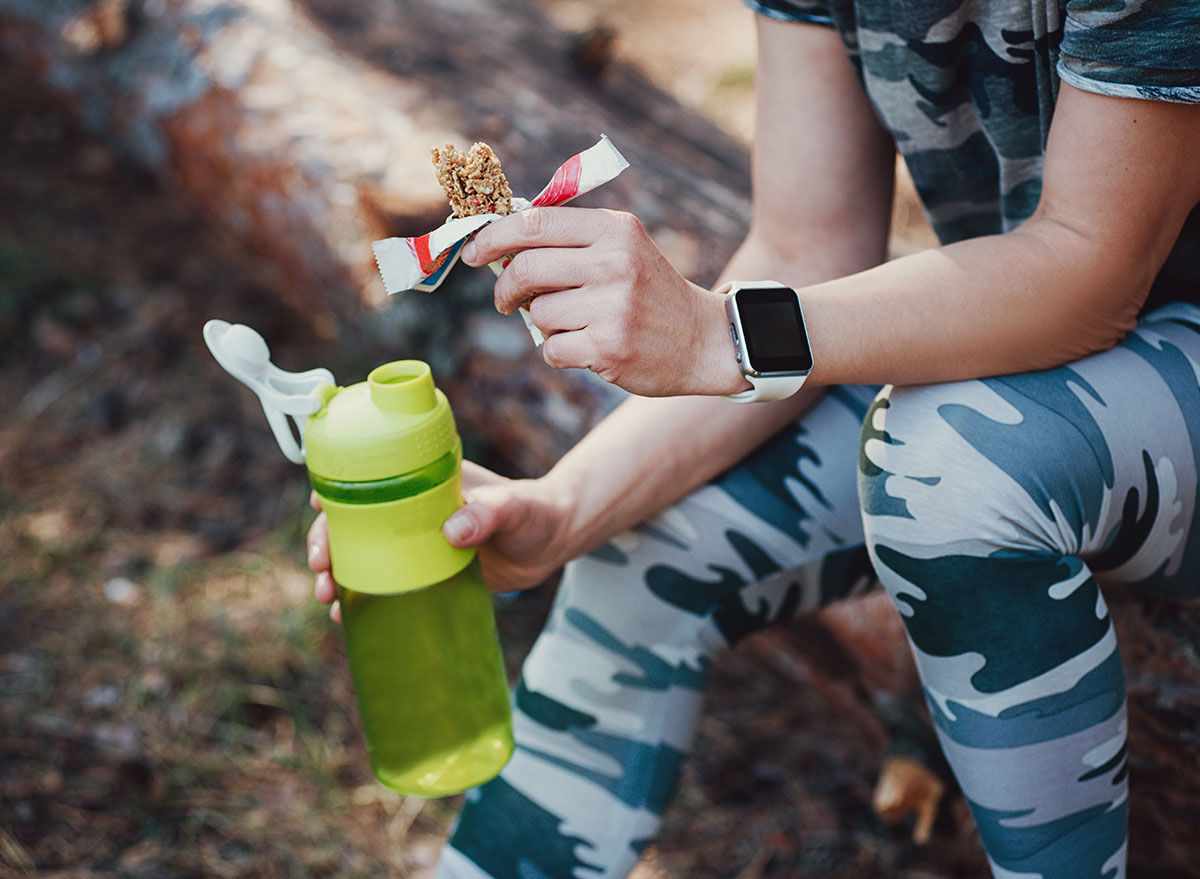
You would never think to sit down to a meal of hamburger and fries an hour before running a marathon, right? Of course not. While there may be some obvious meals you'd want to skip before exercising (ice cream and pizza, we're looking at you), there are also some less obvious foods and eating habits you eat or partake in pre-workout that aren't doing your body any favors.
We asked nutrition experts to walk us through the eating habits to avoid before a workout. After reading this, check out The 6 Best Pre-Workout Foods, According to an Expert.
Eating anything just before a workout.
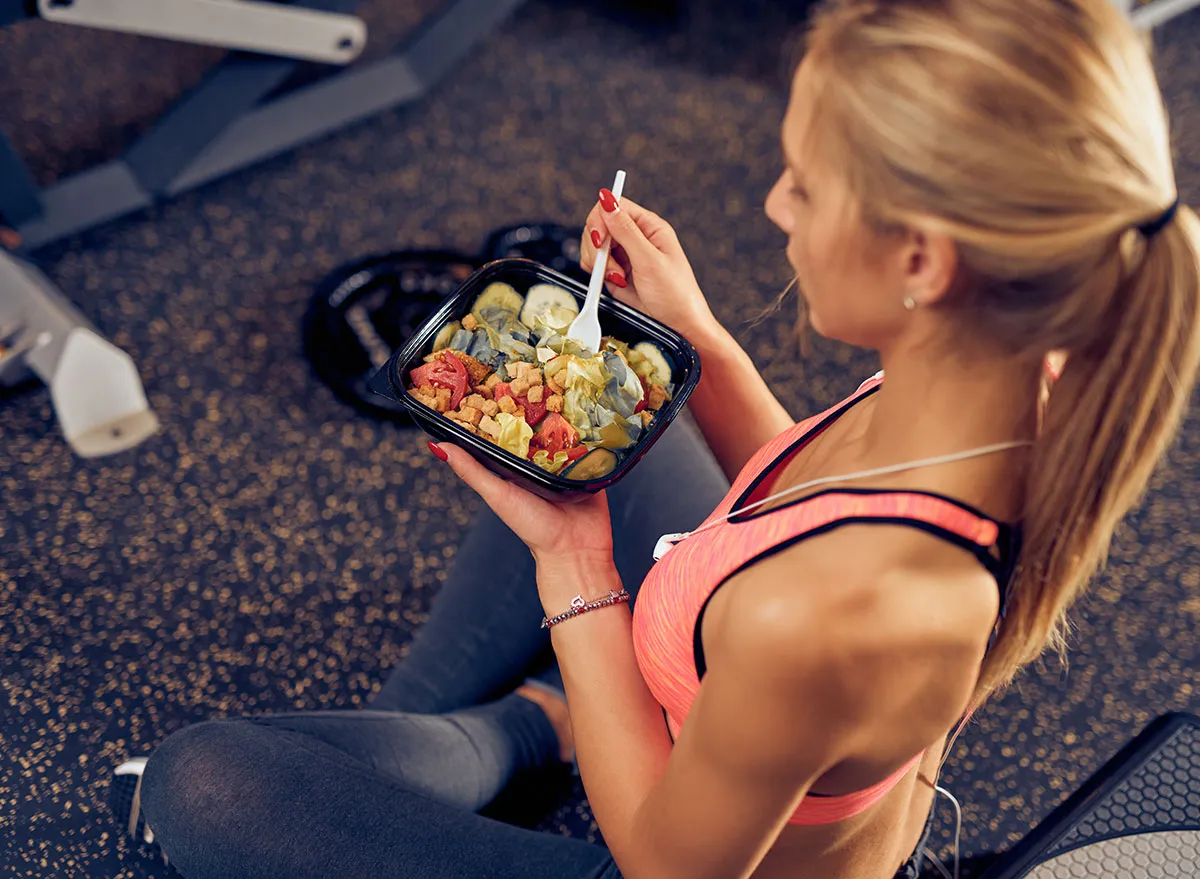
"Any food consumed within about 30 minutes of a workout may not be fully digested," says certified strength and conditioning specialist (CSCS) and registered dietitian Ben Tzeel, MPH, RD, founder of Your Diabetes Insider. If there's still food in your stomach, you can become bloated and experience discomfort, which can compromise your performance.
"If your goal is to have a snack to assist in performance, that snack needs to be digested and hit the bloodstream to provide nutrients," Tzeel says. To be safe, eat a snack about an hour before working out so food you consume has time to do that. Large meals obviously will take longer to digest.
Consuming mostly protein.
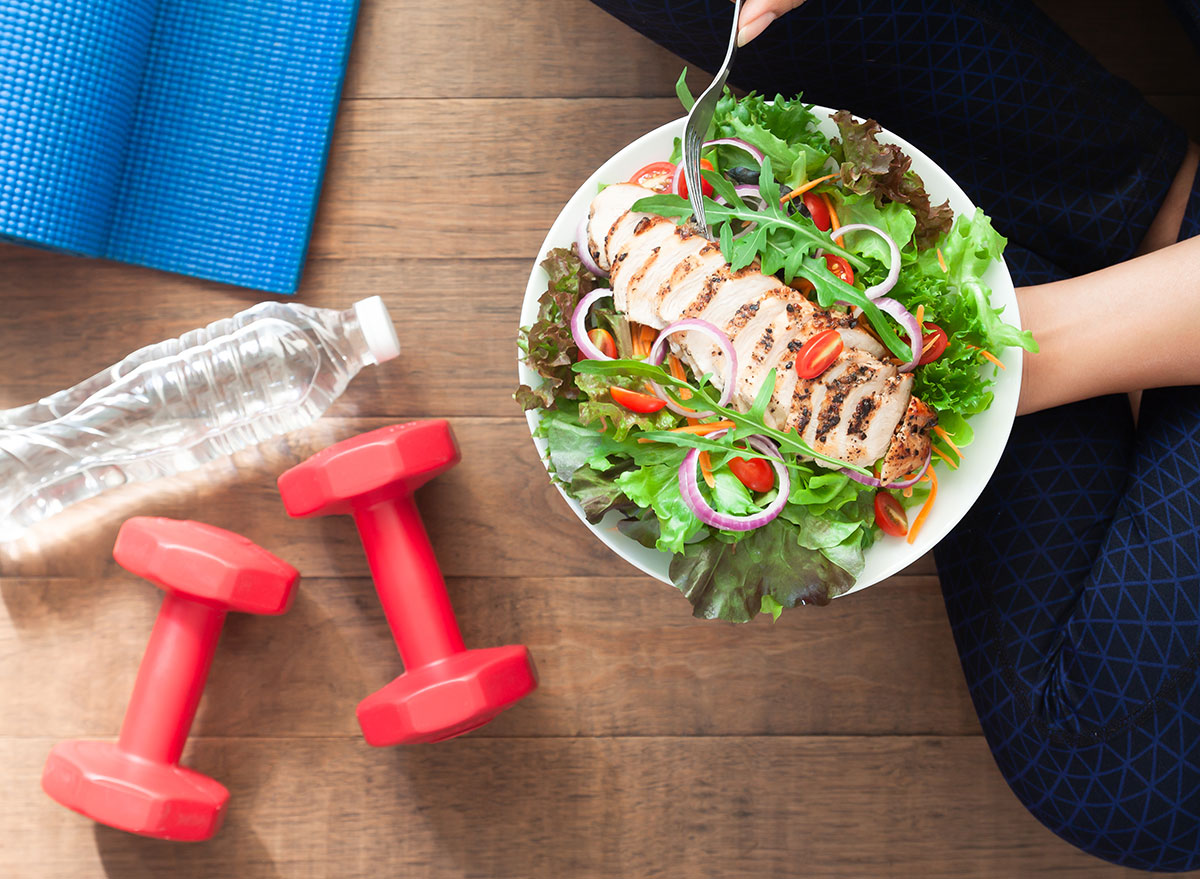
The poster boy of lean, healthy protein, a grilled or baked chicken breast, is not something you want to eat before a workout, says registered dietitian Zoe Schroeder, RD, a registered dietitian, certified strength and conditioning specialist, and owner of Zoë Schroeder Nutrition.
"Avoid any meal that's mostly protein; you will not have the same boost of energy that carbohydrates will give you," she says. "The macronutrient protein has a different purpose and is not efficiently used for energy. But a small amount of carbs before your workout will give you the energy to get through your workout, push longer, and push harder."
Visiting the fast-food drive-thru.

It may be convenient to grab lunch at the drive-thru before your 1 p.m. spin class, but that would be a mistake. You'll want to avoid foods high in fat and deep-fried foods. "Fried foods like fried chicken, bacon, hamburgers, and sausage are very hard to digest and can cause GI upset," says registered dietitian Kim Pierce, RD, LDN, a registered dietitian, certified diabetes care and education specialist, and owner of The Outdoors Dietitian.
Chowing down on a burrito or crunching on carrots.
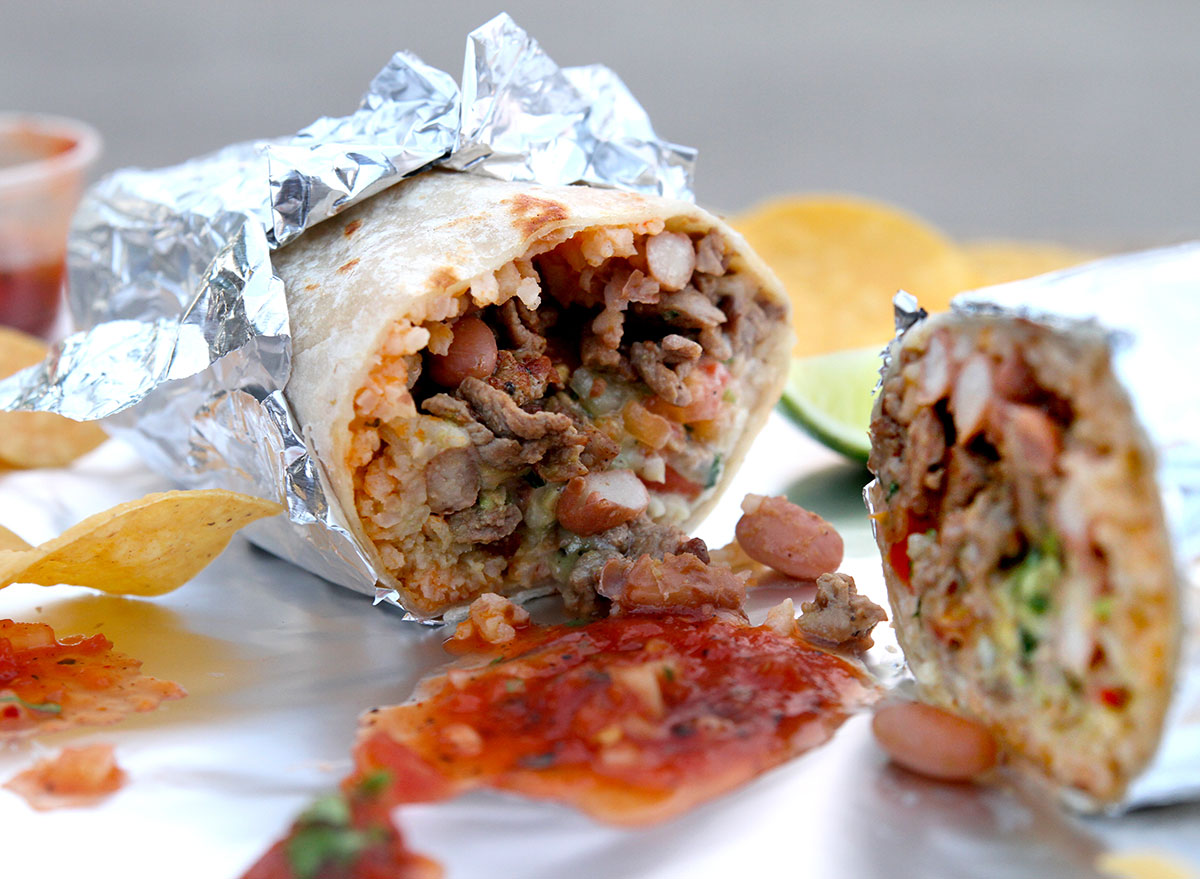
Eating black beans, carrots, broccoli, apples or other fruits and vegetables may sound like a healthy way to prepare for a workout but think twice. High-fiber foods like those can cause stomachache, gas, and other digestion problems during high-intensity workouts, warns Pierce. Eating whole grains can trigger tummy trouble, too. For the same reason, avoid the habit of eating a big salad before a workout, says Schroeder.
Eating protein bars or granola bars.
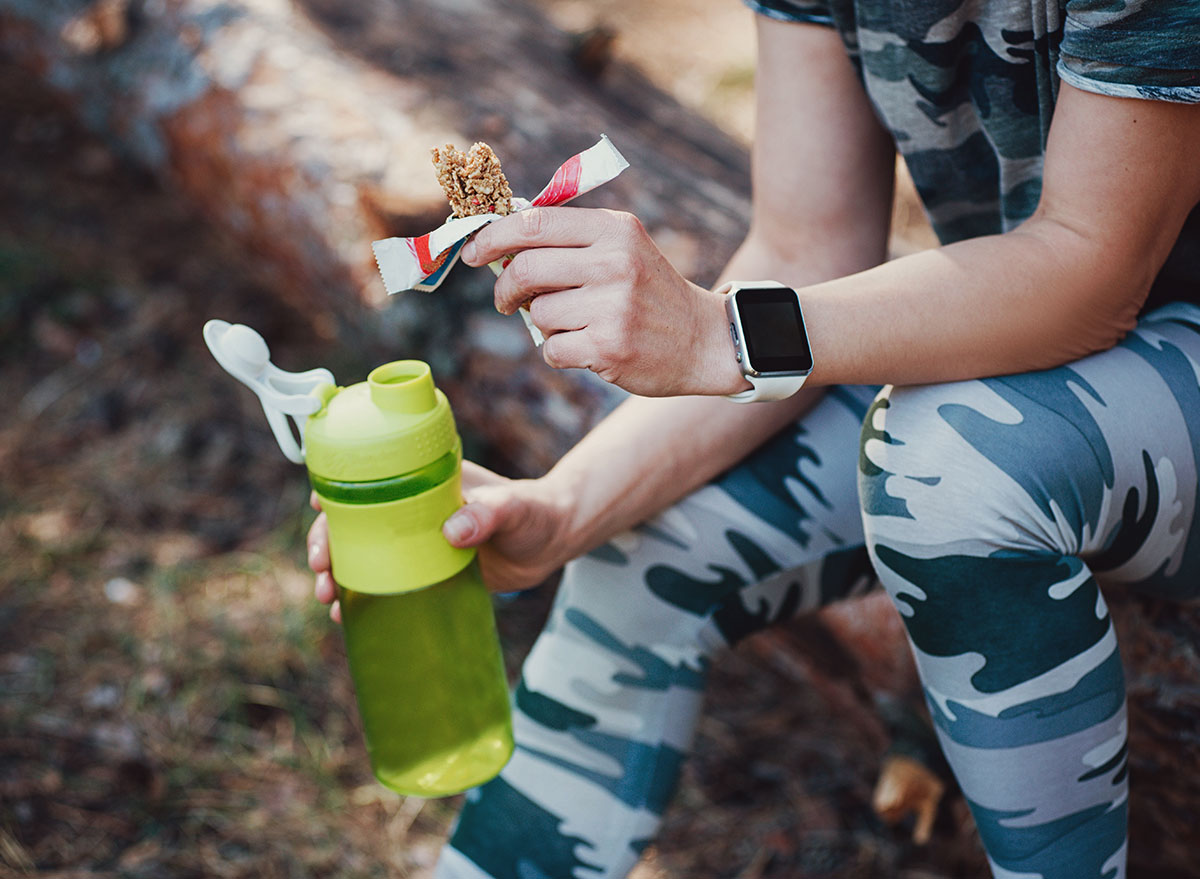
While you'll want to consume some carbs before a workout, that doesn't mean you should be loaded up with refined or simple carbs, like anything high in sugar. Some foods you may not even realize are high in sugar should be avoided before a workout, like many granola and protein bars. "Stick to foods that are organic and low in sugar, such as bananas or oatmeal," says Reimers. A handful of nuts or half an avocado eaten at least a half hour before a workout can provide energy that won't leave you feeling heavy.
Not drinking enough water.
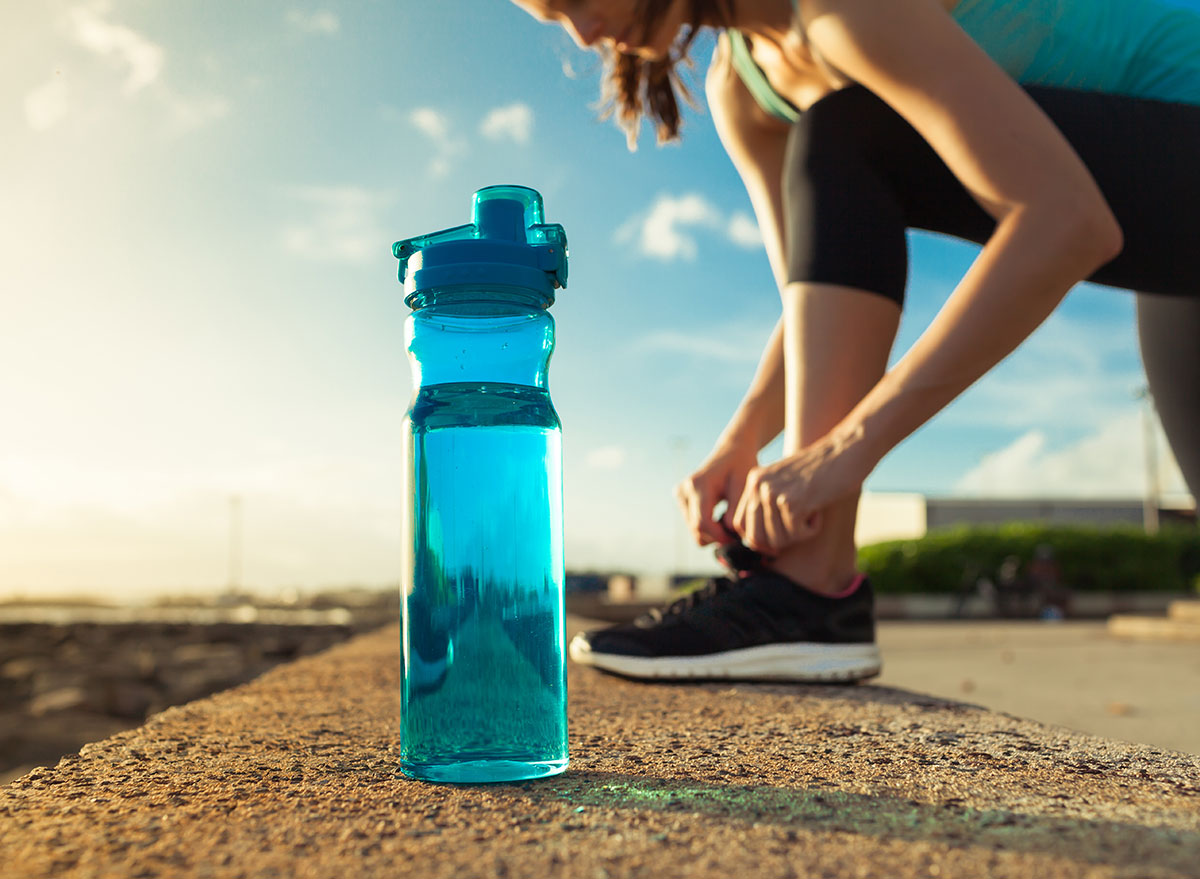
Another common pre-workout habit to avoid is not drinking enough water in the hours before as well as during a workout, say dietitians. "It's the worst habit, not hydrating appropriately," says Pierce. "Being hydrated is critical for optimizing your performance," says Schroeder. As a general rule, drink 17 to 20 ounces of water 2 to 3 hours before you start exercising and then 8 ounces of water 30 minutes before the workout or during your warm-up, suggests the American Council on Exercise.
Read this next:
